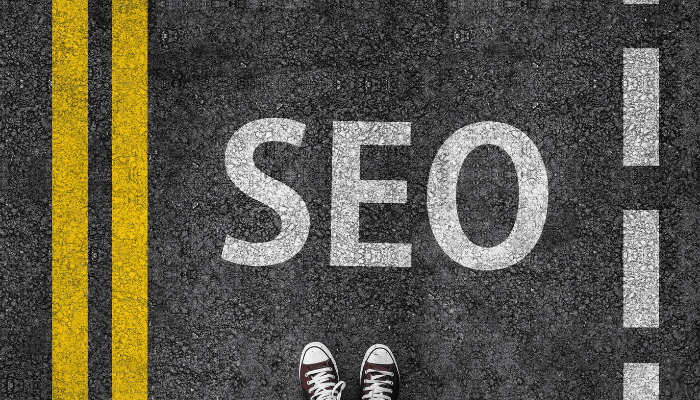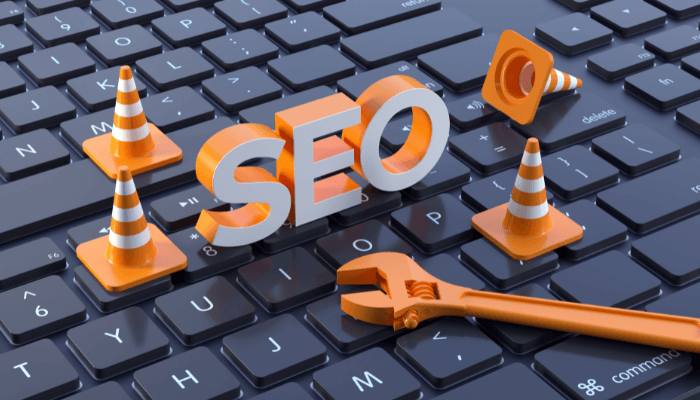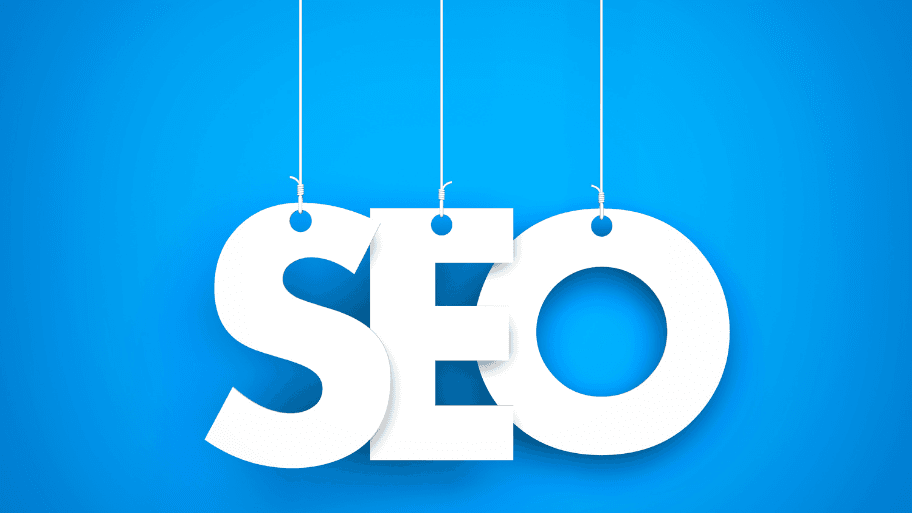In digital marketing, search engines like Google, Bing, etc. use complex algorithms to determine your website's ranking on search engine results pages (SERPs). One way to increase traffic is by optimizing your website, which is mainly based on on-page and off-page content. In today's article on Grow Easy we will focus on off page optimization and its processes.

These are the topics that will be covered in this article:
- What is SEO?
- Different SEO techniques
- Off page optimization
- Importance of off page optimization
- Off-page factors, related and unrelated links
- Backlinks
- On-page vs Off-page SEO
- Advantages of off-page SEO
Let's get started!
What is SEO?

Search Engine Optimization or simply SEO is the process of increasing traffic to your website for free. To put it in a better way, I would say it is the practice of increasing the quantity and quality of traffic to your website through organic search engine results.
SEO increases the chances of companies to grow and thrive. This is because organic traffic is more reliable and is obtained without much investment. So if you want to learn how SEO works, check out Edureka's latest video on SEO. No wonder On-Page SEO is very important, but if you don't focus on Off-Page SEO, you won't be able to achieve your desired goal.
Now that you've understood what SEO is, let's go ahead and take a look at the different types of SEO available in the market.
Different SEO techniques | Off page optimization
People often get confused between the types and techniques. The types include black hat SEO, white hat SEO and grey hat SEO. Now the techniques include
- On-page SEO
- Off-page SEO
- Technical SEO
Let's find out what they are.
On-page SEO

Well, On-Page SEO is the practice of optimizing individual web pages to rank higher in SERPs and receive more relevant traffic from search engines. As the name suggests, it optimizes the content that is present on the page.
Now, what do you think is the content on a page? It is nothing but title tags, meta tags, keyword density, URL and so on. These are nothing but the strategies you follow to gain more traffic by having content on the page. You might be thinking, what's so special about working on on-page content? Well, there is.
As long as you focus on paying more attention to the content and how it is presented to the viewer, you are in safe hands.
Moving forward, let's learn what Off page optimization is
Off page optimization
Off page optimization deals with the actions that are done outside of your website to improve your ranking in SERPs. A recent study also states that Off page optimization accounts for up to 75% of a good digital strategy.
It has everything to do with your social presence, link building, and much more that shouldn't actually be on the page. In layman's terms, I'd say Off-Page SEO is simply telling Google or search engines what your audience thinks about your website.
Furthermore, I often meet people who say that off-page optimization is just link building. But there are definitely more wings. It has strategic control over ways to make you known on the web.
Many widely used elements of Off-Page are:
- Backlinks
- Follow and non-follow
- Anchor text
- Links
- Relevance
Now that you know what Off Page Optimization is, let's see why it's so important.
Importance of Off page optimization

Search engine algorithms, ranking factors, and tactics are constantly changing. In parallel, the general consensus is that the credibility, relevance, and authority that effective off-page SEO can afford still plays a drastic role in that page's ability to rank.
Links are very important to rank your website in the SERPs. So having links (inbound, outbound links) on your website may just increase your chance of ranking on the first page of Google.
To make sure your content ranks, you need to have proper visibility on your website.
Often websites do not rank due to Off page optimization. This is due to lack of link building, social media, videos, blogs, etc.
Moving forward, let's understand the various off page factors that affect page ranking.
Off-Page Factors Related and Unrelated Backlinks are the heart of Off-Page SEO. Search engines like Google, Bing and many others use backlinks as definite indications of benign content. Backlinks are also the most critical part of Off page optimization.
You can use SEO tools for this purpose.
Ahrefs is one such tool that has a backlink checker tool that helps you understand how to create backlinks and process them.
Off page optimization related links

When I say link, I am talking about the links that are present on the web page, connecting it to the other website. I'll mainly talk about three types of links.
- Natural links
- Manually built links
- Self-created links
The main factors that influence these links are:
- The popularity of the linking site
- The freshness of the link
- Proper use of anchor tags/texts
- Right linking domain and website
- Link building
One of the most effective and popular ways to tackle Off page optimization is link building. Here we have the concept of "votes" which helps in gathering the ranking position of your competitors and your company.
There are many ways through which you can include links. A few notable ones are:
- Blogging: you can always have articles pointing to your website. Get traffic from other mediums such as guest blogging, etc. It also helps you to get recognition in the field of digital marketing and also to know the current market trends.
- Link to Comment: One way to achieve greater customer engagement is by solving their problems and targeting them properly. So you always have the option to link your content in the comments section.
- Spreading articles: This is another way to get more traffic to your website. Content Marketing deals with creating videos and writing blogs. These business articles are not only made up of fancy words but also contain the thirst for getting more traffic and leads. You need to be able to distribute your content properly.
Next, we'll talk about Anchor Text, which is used to create off-page links.
Anchor Text
This is the visible and clickable text in the hyperlink. These links are the ones that you can find in any article when they link to another web page. Often this is blue and underlined text.
Example:
<a href=http://www.groweasyltd.com><Grow Easy Ltd></a>
These Anchor texts are used by search engines to show how the reflection of how the audience views your website. The "anchor" was used in previous HTML specifications. It is now used as the "a" element.
Off page optimization, unlinked
These factors have a much greater impact on your traffic compared to those without SEO or social media marketing. Here are a few notable ones among the unrelated off-page SEO links.
- Social media marketing
- Guest blogging
- Related and unrelated brand mentions
- Influencer Marketing
Note: The end result of any of your website activities is to somehow create a link to your website from elsewhere on the web, a referral link, a mention of your brand or website.
Now, focusing on the backlinks part, let's see what that is.
Backlinks

Backlinks are also called inbound links or inbound links. They are created when one website links to another. A link to an external website is called a backlink.
Google and other major search engines consider backlinks as votes for a specific web page. This means that the page with the higher number of votes will rank higher in the SERPs.
Example: imagine I like a post from X on Instagram. I share the relevant post on my profile and my followers will click on the post I shared. This will actually create a backlink to the post from X, which means that not only will I include the post from X here, but I'll also get more views and clicks because I shared one of the most popular posts from X. It's a win-win situation.
Why do you need feedback?
Feedback is important to make sure your audience knows about your business. Also. look for people to find other sources of information on the same or related topics.
How do you get feedback?
- Write lots of guest posts
- Build a good public relationship
- Helps reduce broken links
Note: To check how many backlinks your website has, put your domain in Ahrefs Site Explorer or it's free backlink checker.
On-Page vs Off-Page SEO
Comparing the two most widely used SEO techniques, I noted the main differences between them.
Now, in the last part of this article, we will look at the benefits of using Off-Page SEO.
Benefits of Off Page Optimization:
- Increases Ranking: It helps your website rank higher in SERPs, which results in earning good traffic.
- Wonderful exposure: The higher the ranking, the more will be the traffic due to the number of links, social media mentions, etc.
- Increase PageRank: Getting your website to rank on the first page of Google is quite challenging, but by using Off-Page SEO, you will be able to learn about the ranking factors. This page rank number is between 0-10, which is important according to Google and is placed on the first page of search results.
This brings us to the end of this article on "What is Off page optimization?". I hope you are clear on the topics being discussed and have added value to your knowledge of digital marketing.
